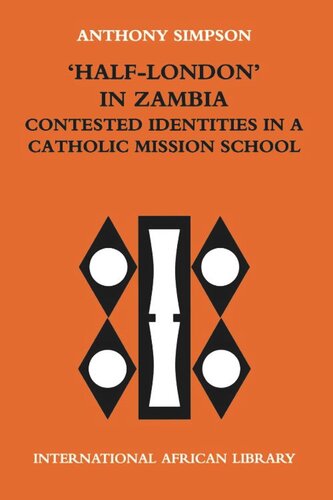

Most ebook files are in PDF format, so you can easily read them using various software such as Foxit Reader or directly on the Google Chrome browser.
Some ebook files are released by publishers in other formats such as .awz, .mobi, .epub, .fb2, etc. You may need to install specific software to read these formats on mobile/PC, such as Calibre.
Please read the tutorial at this link: https://ebookbell.com/faq
We offer FREE conversion to the popular formats you request; however, this may take some time. Therefore, right after payment, please email us, and we will try to provide the service as quickly as possible.
For some exceptional file formats or broken links (if any), please refrain from opening any disputes. Instead, email us first, and we will try to assist within a maximum of 6 hours.
EbookBell Team

5.0
100 reviewsThis book describes and analyses life in 'St Antony's', a Zambian Catholic boys' mission boarding school in the 1990s, using the context-sensitive methods of social anthropology. Drawing upon Michel Foucault's notion of the panoptic gaze, Anthony Simpson demonstrates how students are both drawn to mission education as a 'civilising process', yet also resist many of the lessons that the official institution offers, particularly with respect to claims of 'true' Christian identity and educated masculinity. The phrase 'Half-London' reflects the boys' own perception of their privileged but very partial grasp, in the Zambian context of acute socio-economic decline, of 'civilised' status. The book offers unparalleled detail and insight into the contribution of mission schooling to the processes of postcolonial identity formation in Africa. Its rich and compelling ethnography opens up a strong sense of everyday life within the school and raises compelling questions about identity in plural societies beyond the confines of St Antony's.
Anthony Simpson taught at the Zambian Catholic mission boys' boarding school from 1974 to 1997. He arrived in Zambia as an English teacher, but his involvement in the day-to-day life of St Antony's led him to an interest in anthropology and psychology.
Key Features